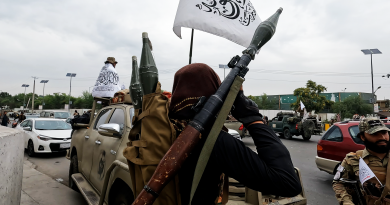FOCUS on Sports Geopolitics: The Olympics
Christopher Benítez Cuartas
Staff Writer
Those who follow sports in some way will know that politics always get involved no matter how much fans wish otherwise. As has been shown this year, domestic and international politics have characterized the Olympic Games, as the most international and inherently political non-political event there is. With the 2022 Beijing games ongoing, it is worth remembering that the Olympics’ thrust into political spotlights isn’t new.
Political squabbles usually flow into the international sport when determining who gets to host. A host country spends a significant amount of time sweeping controversies under the rug to make a good impression on international audiences. The three most common controversies a host country can face revolving around domestic politics, finance, or international pressure. The controversy this time is that China, an authoritarian state, gets to welcome the world—at least metaphorically because there are no international spectators allowed according to CNN—amid a barrage of accusations and one of its worst positions on the world stage according to surveys conducted by the Pew Research Center.
Most of the time, domestic politics only affect domestic sports. In the United States, controversies in college football and baseball in the last couple of years show political and social divisions among Americans, according to ESPN. Nonetheless, the resonance of the controversies largely stays within our borders, as Major League Baseball and college football’s audience is almost exclusively American, respectively. Hosting the Olympics, however, has shed light on some previous host countries’ domestic affairs.
The 1976 summer games in Montréal were meant to be a celebration of Canada’s historic and political epicenter. Instead, fights with a construction union leader-turned-mobster led to a massive delay to the construction of the monumental, circular Olympic Stadium, reports the Ottawa Citizen newspaper. It would be paid for completely in 2006, turning the “Big O” stadium into “The Big Owe,” a name used to mock the excessive cost, according to the Canadian Broadcast Corporation.
If an authoritarian state hosts the games, pressure can sometimes come from the outside and force change. General Chun Doo-hwan ruled South Korea as a dictator from 1979 to 1987. As Seoul prepared to host the games, major protests sprung up across the country against the regime. In the end, the regime collapsed and made way for elections amid the attention it received from the rest of the world, according to the University of Alberta.
Independence campaigns, meanwhile, can also cause disruptions to host cities. The 1992 summer games were held in Barcelona. The Spanish central government invested millions beautifying the city, only for Catalan independence activists to take advantage of the international spotlight by handing out pamphlets and flying the independence movement’s flags, says a paper published by the American Anthropological Association.
China’s role in international sports politics is interesting given its history. After the Chinese Civil War, the Republic of China led by Chiang Kai-shek represented China at the Olympics as Mao’s People’s Republic isolated itself after parting with ways with Stalin. Beijing grew irritated with the Chiang-led Chinese delegation—at this point exiled in Taiwan—taking up the name China, that it boycotted until the International Olympic Committee brokered the Nagoya Resolution in 1979. This forced the Taiwanese to compete as “Chinese Taipei” while the People’s Republic of China was recognized under its official name.
Since then, China has sent delegations to every Olympics, according to TIME. Given the boycotts of 1980 and 1984 by the U.S. and USSR, respectively, going to both games made China seem like an open, global player. This image reached its peak in 2008, with neatly organized summer games in Beijing. With an acclaimed opening ceremony, a catchy theme song, and the top place in the gold medal table thanks to a government athletics program, according to Newsweek, China projected itself as even more open and global, but now it was competitive as well.
China’s involvement in the Olympic movement has been steady ever since 2008. The Chinese delegation has always been among the top five ranked on the medal table in the three summer games that have been held since. When it comes to winter sports, however, China still has ways to go. The country hardly has any natural snow, and the 2022 Beijing games will be the first to rely completely on artificial snow for ski and snowboard events. Massive construction has taken place in the Beijing district of Yanqing and the suburb of Zhangjiakou in Hebei province. Given COVID and the accusations of human rights abuses, that controversy is among the least worrisome for organizers. The Olympics have always been about politics, but Beijing 2022 is the most interesting chapter of the political history of the Olympics.

